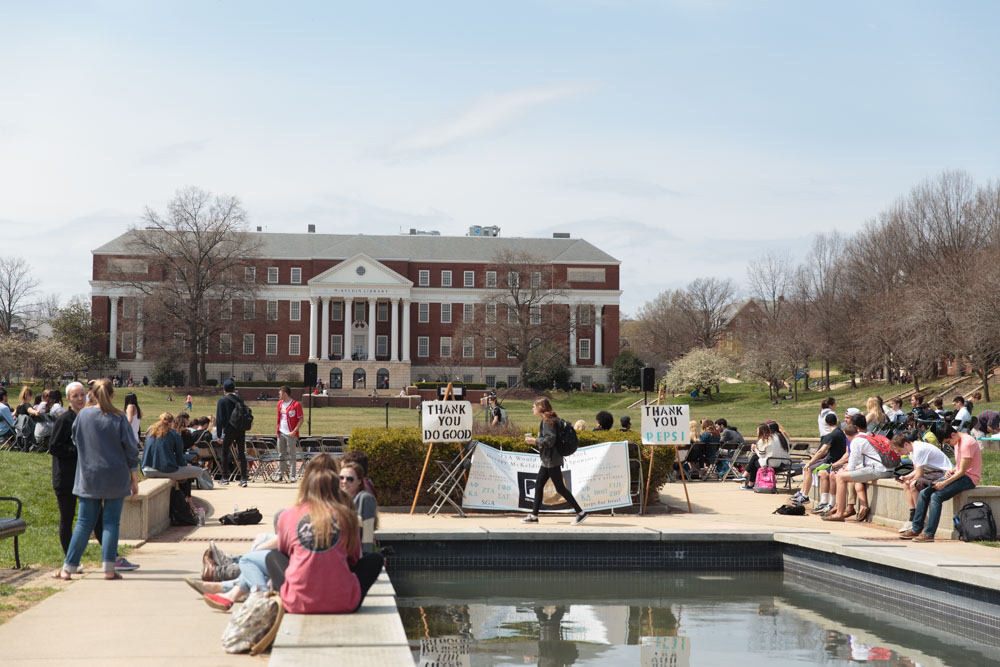The Trump administration’s nominee to lead the U.S. Education Department’s Office for Civil Rights, Kenneth Marcus, is garnering criticism from some University of Maryland student groups for his stances on campus sexual assault and the Israeli-Palestinian conflict.
As the assistant secretary in charge of OCR, Marcus — who led the office from 2002 to 2004 — would have the power to interpret federal civil rights and education legislation in investigations of campus discrimination and sexual misconduct. He would replace Candice Jackson, OCR’s acting assistant secretary.
At his confirmation hearing Dec. 5, senators questioned Marcus on how he would handle the adjudication of campus sexual assault. Marcus said he supported Education Secretary Betsy DeVos’s rescission of Obama-era recommendations on the issue, which allowed universities to raise the standard of proof for sexual misconduct investigations, according to an Inside Higher Ed article.
Marcus would not commit to continuing to publish a list of universities under investigation for how they address sexual misconduct investigations, according to Inside Higher Ed. This university currently faces three OCR investigations regarding its handling of sexual violence cases. The most recent case was announced last month.
[Read more: U.S. Education Department opens third Title IX investigation into UMD]
Cristina Johnson, the president of Preventing Sexual Assault — a campus group that aims to raise awareness for sexual misconduct issues and advocate for sexual assault survivors — called Marcus’s comments “worrisome.”
“Especially at Maryland it’s really important who has that job because we do have three cases [with OCR], so we do want someone who’s going to be on top of it,” Johnson said. “From my research, it doesn’t really seem like he’s the person to be doing that.”
Johnson also expressed concern over Jackson’s views toward campus sexual misconduct. In July, Jackson told The New York Times campus sexual misconduct cases haven’t been fair to the accused.
“The accusations — 90 percent of them — fall into the category of, ‘We were both drunk, we broke up and six months later I found myself under a Title IX investigation because she just decided that our last sleeping together was not quite right,'” Jackson said.
Between Jackson and Marcus, “there’s got to be a better person than both of them, if they’re making those comments,” said Johnson, a senior journalism major. “There’s got to be someone that cares enough to do something, as opposed to making comments like that.”
But Johnson said policy changes at the federal level have still prompted more people to pay attention to the issue.
“Just this past semester and year, there’s been so many people asking us, ‘Should I be worried? What’s going on? Like, what’s going to happen on our campus?'” Johnson said. “It really has brought everyone’s voices out and finally people are saying something. Maybe with enough pressure and everyone coming together in these times [the public is] moving in the right direction.”
[Read more: Loh: DeVos rescinding Obama’s Title IX guidelines leaves UMD in “period of uncertainty”]
Students for Justice in Palestine President Miranda Mlilo also spoke against Marcus’s nomination, saying it could affect the rights of campus minorities and impede free speech.
“[He] has consistently advocated for taking away rights for women, minorities and people in the LGBT community,” said Mlilo, a junior environmental science and policy major. “He has done a lot of things to try to silence the voice of the pro-Palestinian [movement].”
In 2011, Marcus wrote in a paper for the Journal for the Study of Antisemitism that OCR should confront “anti-Semitic incidents that masquerade as anti-Israelism,” pointing to the Boycott, Divestment and Sanctions movement — a Palestinian-led movement to put non-violent pressure on Israel for its actions in the region — on college campuses in particular. Mlilo called this stance “unreasonable.”
“It is unacceptable: the idea that our school is actively involved in the Israeli occupation an to not be even able to speak out against that or voice our concerns … It would take away all of our power and control as students and leave us mute,” Mlilo said.
Terps for Israel could not be reached for comment, and university communications declined to comment on Marcus’ nomination.
“As a matter of practice it’s not common for the university to weigh in on political nominees or appointees,” university spokeswoman Jessica Jennings wrote in an email.
Marcus’s nomination passed the Senate’s education committee Jan. 18, and is awaiting a vote in the full body.



